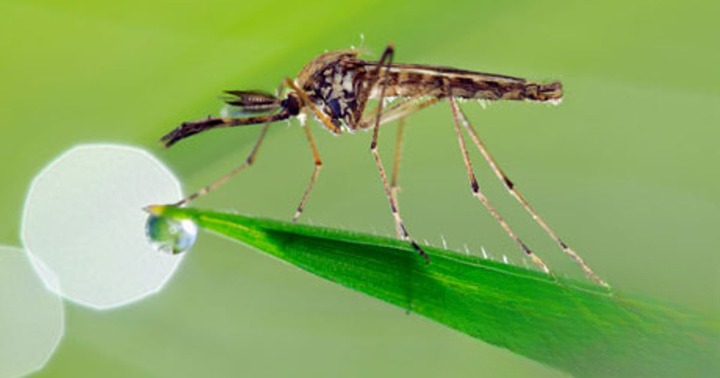
There are many factors to consider when planning your pond. The most obvious reason is that mosquito larvae need a source of food to grow rapidly. In most ponds, you’ll find thick layers of algae, which mosquitoes love to feed on. To keep mosquitoes away and keep your pond cleaner, get rid of these thick layers of algae with a pond algaecide. Then, consider installing Koi fish that consume mosquito larvae.
Ponds Attract Mosquitoes
Mosquitoes love stagnant, shallow water. They lay their eggs on the surface and hatch within a week, making stagnant water a prime breeding ground. This means that if you’re trying to prevent mosquitoes from breeding in your pond, consider creating a natural barrier around it. A natural barrier is a natural insecticide. However, if the mosquitoes keep finding your yard uninviting, you may need to get rid of the water from your pond.
If you can’t remove all adult mosquitoes from your pond, you can buy mosquito pucks to kill their larvae. These contain Bacillus thuringiensis israelensis, which kills mosquito larvae, but not their eggs or pupae. However, they must be replaced frequently. A natural solution to mosquito control is to plant a variety of plants that block the insects. Fish and other insects will love to eat these insects, so you may want to put some plants in the pond to eat them.
Keeping mosquitoes from breeding in your pond requires regular maintenance. One way to eliminate mosquitoes is to install a waterfall or fountain. The movement of water will keep mosquitoes away, while at the same time adding oxygen to the water. If you don’t have a waterfall or fountain, consider using a mosquito dunk. These insecticides are safe for fish, wildlife, and humans, but may also kill dragonfly larvae.
Koi Fish That Eat Mosquito Larvae
Adding Koi fish that eat mosquito larvae to your pond is a great way to keep the population of these pesky insects under control. However, you must be aware of the fact that they reproduce quickly and can easily overpopulate a pond. To keep the mosquito population under control, you can purchase guppies or other varieties of fish. Mosquito fish are considered invasive in the US, and you should only place them in a legally permitted area.
One of the most effective mosquito larvae-eating goldfish is the comet goldfish. This small goldfish is nearly invisible to mosquito larvae and can move in close to them to feed on them. Comet goldfish hide in pond debris and plants, which make them easy to catch. These fish have excellent feeding habits and will not harm other pond fish. So, you’ll never have to worry about mosquitoes attacking your pond again!
Minnows are another great way to reduce mosquito larvae in ponds. They feed on mosquito larvae, which in turn help keep the population of these pesky creatures in check. However, if you have large fish species in your pond, you should consider restocking the pond with minnows annually. Fortunately, these small fish are inexpensive and widely available. If you have other species of fish in the pond, they will eat the smaller ones, so they’ll remain effective.
Fountains and Waterfalls
A running fountain will discourage mosquitoes from breeding and using your water feature as a breeding ground. Not only will your water feature increase circulation and water temperature, it will also discourage mosquito larvae from coming to the surface of the water to feed. Ideally, you should keep your fountain running for an hour or two a day. It may help to treat the water with a vegetable-based oil to reduce the surface water tension.
A higher humidity level is another attraction for mosquitoes, and moving water keeps females from landing on the surface of the water. Mosquitoes can detect carbon dioxide from 75 feet away, and the presence of moving water will keep them from landing on your skin. If you have dark-colored clothing, you’ll be more vulnerable to mosquito bites. The simplest way to reduce mosquito activity is to maintain regular maintenance and cleaning of water features.
If you prefer a natural solution, consider mosquito-eating fish to your pond. Many species of fish, such as tadpoles and minnows, feed on mosquito larvae and prevent them from growing into adult mosquitoes. You can also try mosquito-eating fish like goldfish, white cloud minnows, and zebra danios. You should be careful, however, to avoid Koi fish, which are too large to target larvae.
Still Water
A pond’s still water can act as a breeding ground for mosquitoes. Luckily, there are several ways to eliminate mosquitoes without harming your pond’s fish or plants. First, you can try using a bacterial insecticide. Bacillus thuringiensis israelensis is an effective option because it kills mosquito larvae without harming fish or plants. This insecticide is available in small discs and doughnut-shaped granules.
Using fish in your pond is a good way to keep mosquitoes away from your pond. Koi and goldfish like to munch on mosquito larvae and young. Providing you feed them properly, they will be more than happy to attack mosquitoes. Some cities even provide mosquitofish for free. You can also buy mosquitofish if you live in a city that provides them.
In addition to insecticides, mosquitoes breed in stagnant water. Mosquito larvae need food to grow. Consequently, ponds are often overgrown with algae. Getting rid of these thick layers of algae will not only keep mosquitoes away, but it will also make your pond look cleaner. If you’re worried about the effects of algae on your pond’s plants, consider using a pond algaecide to get rid of the organic matter.
One way to prevent mosquitoes from affecting your pond is to add bubblers and water wigglers. These types of fish will prevent mosquito larvae from coming to the surface of the water, where they can feed and reproduce. In addition to bubblers and water wigglers, you can add vegetable oil to your pond to keep mosquitoes away. You can also use a natural bacterium called BTI. This type of bacteria targets mosquito larvae without harming other insects.
Fish That Eat Mosquito Larvae
Some fish species are best at eating mosquito larvae, but others can be just as effective. Goldfish, for example, can be quite effective at preventing mosquitoes and other aquatic pests. Despite their popularity, they are also easy to keep and breed. Goldfish come in different species, and different kinds eat different types of larvae. Shubunkin goldfish, for example, is smaller and darker than common goldfish.
Mosquito larvae are an excellent source of protein and nutrients for most fish species. However, if you are raising mosquito fish in the cold winter months, you might need to supplement their diet with other foods. Tropical fish flakes and dry dog and cat food can be used as bait. If you do feed your fish too much, they may not eat mosquito larvae, and you could end up with a bacterial bloom that can be harmful to the fish. Adding large rocks and vegetation is also a good idea because mosquito larvae grow faster in warm weather.
The downside of introducing mosquito fish is that their numbers can quickly become overwhelming, and you could be importing an invasive species into your pond. This is especially dangerous if you’re living near a natural waterway. This species will also out-compete other fish species, so it’s a good idea to buy mosquito fish from a local pet store or breeding facility. This is a great way to keep mosquito larvae under control.
Controlling Mosquitoes in Ponds
One of the best ways to prevent mosquitoes in a pond is to add a water feature. Water features are naturally aerating and look great in most gardens. If you have a large pond, you can install a mains-powered fountain pump for maximum water height and aeration. For smaller ponds, you can install a solar-powered fountain pump to keep water moving, reducing mosquito breeding grounds.
Besides introducing a fountain or electric aeration pump, adding a fish population can also be beneficial. Large fish such as bass, bluegill, and goldfish do not feed on mosquito larvae. Smaller fish like tadpoles, minnows, and dragonflies also help control mosquito populations. These creatures will feed on the mosquito larvae and other insects in the pond, as well as keep the pond clean.
A combination of various techniques is the most effective for controlling mosquitoes in ponds. The three methods mentioned above are all beneficial for mosquito control. For example, the first method of controlling mosquitoes in a pond is to prevent the breeding of mosquito larvae. Another method involves using an insecticide that kills mosquito larvae in the water. This product will not be effective against grown mosquitoes, but it will kill the larvae and eggs.
Bacterial insecticides are another option. These substances contain a bacteria called B.T. that will kill the mosquito larvae without harming the fish or other creatures in the pond. Several garden centers sell mosquito dunks. Mosquito dunks are used in small ponds and containerized water gardens. They are available at most home/garden stores and can be purchased online.

